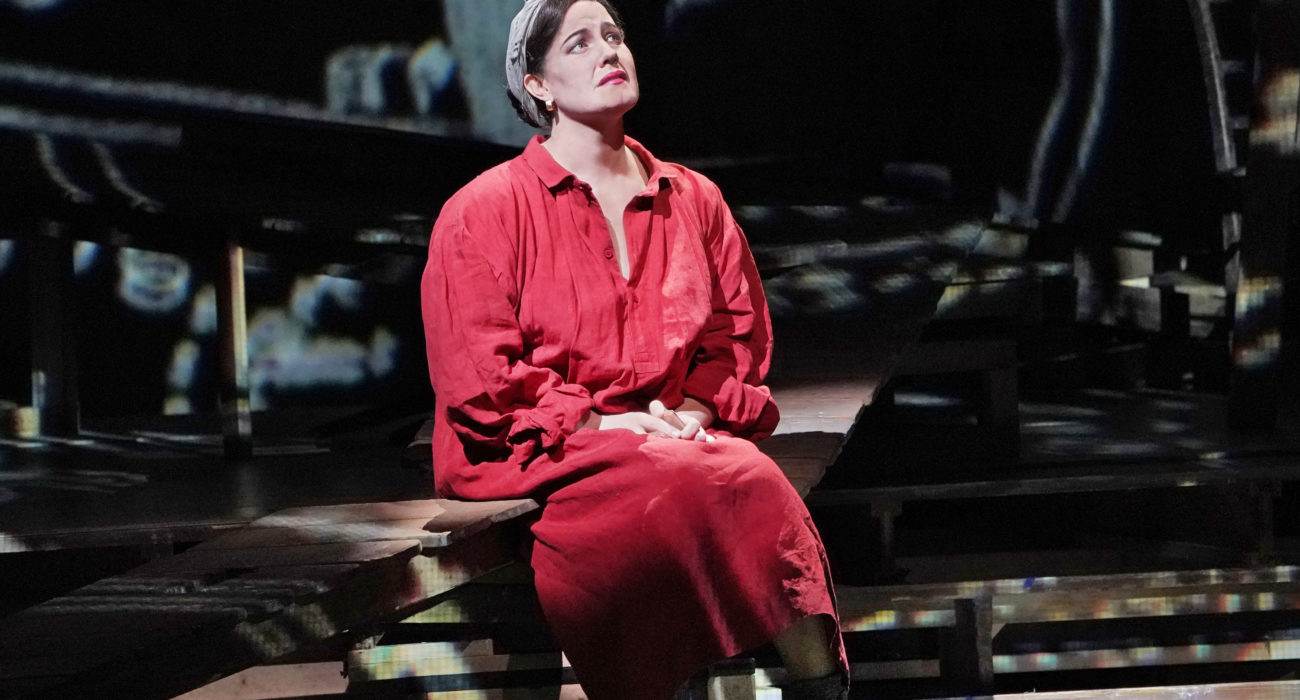““Wozzeck” requires the central character to take hold of the drama and become its emotional core. In this performance, that honor belonged to Elza van den Heever’s Marie. The soprano managed to portray a character full of complexity and contradiction. She was gentle in her expressions toward her son, but in her confrontations with the Drum-Major, she was assertive and aggressive. She resisted him before seizing control of the situation, blasting out intense sound as she pushed him into the room. In a latter scene, she made the Drum-Major chase her. Her scenes with Wozzeck hinted at a combination of fastidiousness but also tenderness, while her shining moment at the start of the third Act, allowed her to express her deep fear and inner turmoil.
It was during this particular moment where van den Heever, after a number of scenes showcasing a bright and vibrant sound, suddenly pulled back and allowed for something far slenderer and more intimate. When she told him to “Fort!” her voice cut through like a jagged knife in one of the viscerally pained moments of the evening. And just like that, she pulled back to the tender vocalism that had commenced the scene, giving it a great sense of external and internal tension; she was afraid of what Wozzeck might due, but also about her conflicted emotions toward her son.”
“Singing with fervor and silvery tone, Ms. van den Heever played Marie as a young woman of allure and depth who, you could imagine, impulsively turns to Wozzeck in a weak moment. When she erupts in defiance, Ms. van den Heever sent phrases slicing through Berg’s orchestra, and you understood the character’s frustrated power. It wasn’t surprising that she is drawn to the alpha Drum Major (the tenor Christopher Ventris) when he passes by and flirts.”
“Elza van den Heever’s voluptuous, clarion soprano made Marie a vivid figure, full of desires and regrets. Her red dress, the one brightly colored garment among Greta Goiris’s otherwise olive drab or earth-toned costumes, proclaimed her vitality, though its sack-like cut avoided the sexiness cliché.”
“Soprano Elsa van den Heever was Marie. Her shining voice was a lovely contrast to those of all the men, especially the accumulated falsetto passages that Berg gave them. She was as empty as Wozzeck, but in a different way—while forces pushed down on the soldier, they pulled Marie into their embrace.”
“Marie is handsomely handled by Elza van den Heever. The voice is solid… and she uses a raspy tone with Wozzeck in their second act confrontation which is both sneering and disrespectful.”
Bachtrack
“La sensualité et la vie sont entrées avec les jambes nues et la robe rouge d’Elza van den Heever, présence animale et voix de feu. En cédant aux avances du Tambour-Major, Marie a scellé son destin et celui de son enfant, un grand pantin au visage d’effaré, marionnette créée par la Handspring Puppet Company.”
